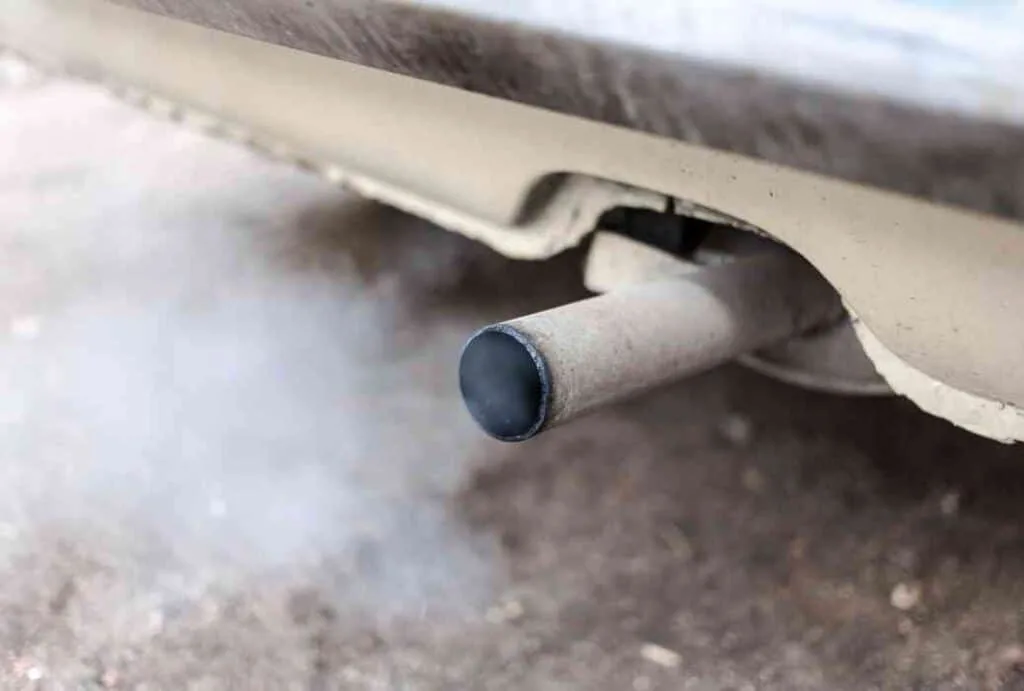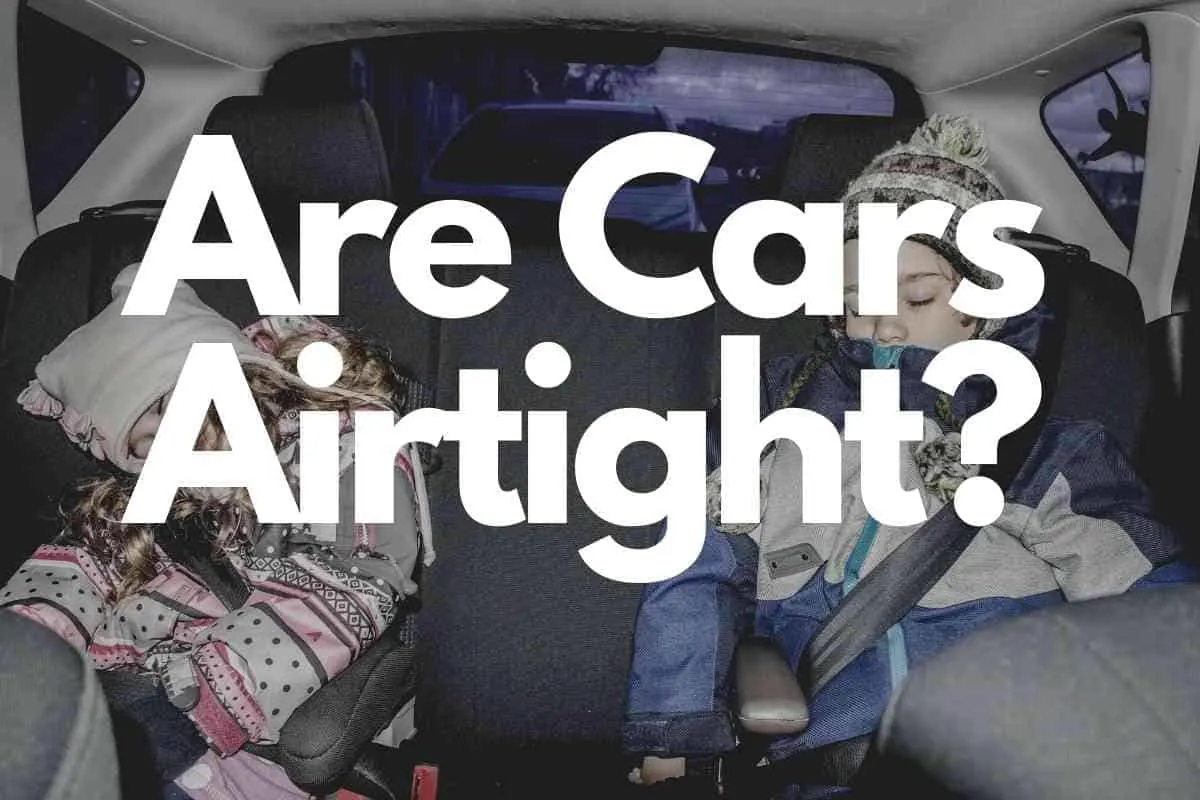If you’ve ever been inside of a parked vehicle with the windows rolled up, you’re surely familiar with how quickly the interior of a car can get hot and stuffy when it’s all locked up.
Indeed, with the windows rolled up, the doors locked tight, and a few passengers packed in, the air quality may start to feel a bit more than just uncomfortable.
How long can you stay locked up inside a car before you start to run out of air? Are cars even airtight?
Cars are not airtight. Assuming you roll up the windows of your average size vehicle, the amount of oxygen that is able to flow through the vehicle is sufficient for up to 10 people before they would feel the effects of low oxygen.
Most vehicles will replace the air in the car every 1-3 hours, making it impossible for you to suffocate.
This is according to a study done by Researcher J.H. Park and other Harvard University environmental health researchers.
It’s important to note that the air exchange rate in older cars is higher than that in newer models.
Read on to get some important pointers on everything you need to know in case you have to sleep in your vehicle.
Are Cars Completely Airtight?
No, cars are not air-tight because their structure and components are designed to let in the fresh air.
The flow of oxygen through a vehicle’s interior means that you are unlikely to suffocate even with the windows rolled up.
There are certain instances that can confirm that a car is not airtight:
- If the vehicle was airtight, you would not be able to close the doors or windows easily. This is because the air pressure inside the vehicle would be different from that outside the vehicle.
- In case an airtight vehicle was to fall in the water, it would float also because of the difference in air pressure.
- People would not be able to travel long distances if the car was airtight with windows closed because they would likely suffocate.
There are more instances that prove that a car is not airtight but it’s important to note that cars can let in oxygen even when the doors and windows are shut.
Moreover, there are vents in the car that allow air from the outside to circulate in the vehicles.
The windows and the seals around the car doors are also not airtight. They are just secure to prevent water from getting into the vehicle.
The reason a car cannot be airtight is that they’re also harmful emissions e.g., carbon monoxide from the car that could get into the car and cause suffocation.
Is It Safe to Sleep in a Car?
There are many things to worry about when deciding whether to sleep in your car.
1. Carbon Monoxide (CO) Poisoning
Your vehicle releases a toxic gas called carbon monoxide which can be deadly if inhaled for a long time.
It replaces oxygen in your red blood cells which affects body functions.
Because CO is odorless, colorless, and tasteless, it can go undetected for a long time, making it very dangerous.

2. Extreme Temperature
Heat
Studies have shown that the inside of a car can get 4.40 hotter than the outside in an hour.
This is standard for a lot of cars but your vehicle could get even hotter depending on other factors.
An example would be in the case of an overheating vehicle due to faulty components in the engine.
Sleeping in the car is dangerous especially for pets and children because they cannot say they are uncomfortable.
They can easily suffer from heatstroke and dehydration if proper action is not taken.
Don’t sleep in a car during a hot day because it might get too hot.
Parking your vehicle on asphalt could make your vehicle hotter as it absorbs a lot of heat.
It’s better to park under a shade on a hot day.
Cold
If the interior of your car is damp, you might be looking at temperatures lower than 400 F.
These low temperatures can cause frostbite and hypothermia.
Typically, when there is a high difference in temperature between the outside and the inside of your vehicle, the air will condense.
The water droplets will accumulate on your clothes making you feel even colder.
3. Intruders
Sleeping in a car exposes you to a lot of dangers from criminals to wild animals.
- Ensure that there are no valuable items in plain sight
- If you are in bear country, keep your food in airtight containers or outside in a tree.
- Keep your doors locked and your windows only halfway open to keep criminals from getting in your car
- Park your vehicle in a well-lit area where there are other people. Don’t sleep in the woods alone.
Do You Need to Crack a Window to Sleep in a Car?
Sometimes cracking a window doesn’t help because the temperatures in the vehicle might be too high.
The CO accumulation in the vehicle might also require some time for the fumes to clear.
In a situation where it’s damp in the car, you should crack open a window.
But what happens if it is raining or it is at night?
Can You Run Out of Air Sleeping in a Car?

You can’t run out of air when sleeping in a car but there are other more dangerous concerns to consider.
Carbon monoxide poisoning should be your most immediate concern because you cannot smell it.
You can sleep in your car but you have to do the following to remain safe:
1. Use the Fresh Air Setting on the A/C
In situations where you can’t keep your car windows open for security reasons, the next best thing is to turn on the “fresh” or “new” air setting.
You might have the “recirculate” setting on but it’s much less effective against fumes in the vehicle.
2. Check Where You Are Parking
Ensure the place you want to park allows you to do so. It’s much safer because they are likely to have security cameras around for protection.
This will deter intruders from breaking into your vehicle.
You also want to park in an open space where there is enough air circulation.
Do not sleep in a garage or poorly ventilated area because fumes from the vehicle will linger making you sick in the process.
Don’t sleep with the engine running, especially in a poorly ventilated area.
Avoid parking your vehicle next to other vehicles, idle or running.
If they are emitting fumes, they might seep into your vehicle when you are sleeping.
3. Do Frequent Mechanical Checks on Your Car
A frequent maintenance check will prevent any incidents such as leaks in the tailpipe, holes in the car body, faulty A/c, etc.
These are just some of the problems that you might want to fix if you intend to sleep in your vehicle.
4. Own a CO Detector
If you intend to frequently sleep in your vehicle, a CO detector will give you peace of mind that there are no toxins in the air while you sleep.
The detector will sound an alarm if any CO gets in the vehicle, keeping you safe at all times.
